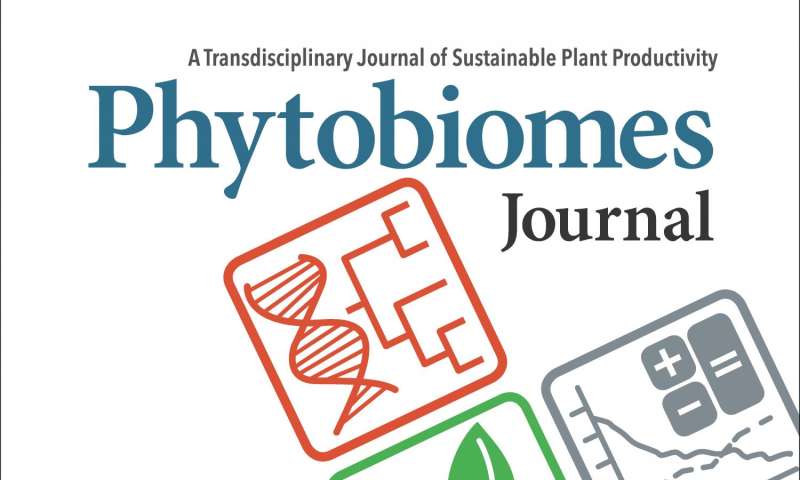New journal provides next-generation research for sustainable plant productivity

According to the Food and Agriculture Organization of the United Nations, the global demand for food, feed, and fiber is expected to double by 2050, despite the emerging challenges of extreme weather events, unsustainable fertilizer inputs, decreasing farmland, and plateauing crop yields.
In July 2015, a group of leading scientists converged on Washington, D.C., to confront these challenges and demands. From this meeting, a new science discipline was solidified, one that focuses on finding new and sustainable crop production practices by researching the thousands of potential interactions within the plant's biome, or ecosystem. The name of this new area of study: phytobiomes.
Phytobiomes, a groundbreaking new journal launched by The American Phytopathological Society, was developed to be the premier research conduit for this important new discipline of the same name.
The fundamental and translational research from this fully open-access journal is expected to provide the basis for many next-generation approaches to sustainable crop production by reporting on all manner of interactions between the plants, their environment, and the complex communities of organisms influencing their health and productivity.
"Building the phytobiomes community centered around plant productivity was just the beginning," said Dr. Carolyn Young, Editor-in-Chief of Phytobiomes. "Now we also have a journal that can provide impact to the ensuing research. The scope is broad enough that transdisciplinary research not only fits but is encouraged."
All Phytobiomes articles are fully open access. Those comprising the first issue include:
- "Welcome to Phytobiomes" by Carolyn A. Young and Linda Kinkel
- "Response of Sediment Bacterial Communities to Sudden Vegetation Dieback in a Coastal Wetland" by Wade H. Elmer, Peter Thiel, and Blaire Steven
- "A Dimorphic and Virulence-Enhancing Endosymbiont Bacterium Discovered in Rhizoctonia solani" by Ken Obasa, Frank F. White, John Fellers, Megan Kennelly, Sanzhen Liu, Benjamin Katz, John Tomich, David Moore, Heather Shinogle, and Karen Kelley
- "Isolation of Cultivation-Resistant Oomycetes, First Detected as Amplicon Sequences, from Roots of Herbicide-Terminated Winter Rye" by Matthew G. Bakker, Thomas B. Moorman, Thomas C. Kaspar, and Daniel K. Manter
- "Discovery of Known and Novel Viral Genomes in Soybean Aphid by Deep Sequencing" by Ying Feng, Elizabeth N. Krueger, Sijun Liu, Karin Dorman, Bryony C. Bonning, and W. Allen Miller
- "Conflicting Effects of Climate and Vector Behavior on the Spread of a Plant Pathogen" by Matthew P. Daugherty, Adam R. Zeilinger, and Rodrigo P. P. Almeida
Phytobiomes is highly transdisciplinary in scope. Its large, diverse editorial board of leading scientists situated throughout the globe cover a wide range of basic and applied science fields, including:
- Fundamental scientific fields such as ecology, climatology, botany, chemistry, computational biology, and genetics
- Pest-inclusive disciplines like plant pathology, virology, mycology, bacteriology, entomology, and nematology
- General crop science disciplines such as agronomy, soil science, entomology, animal science, and weed science
Phytobiomes publishes high-quality research papers, review articles, perspectives, resource announcements and various short communications, particularly those that utilize or develop novel approaches to improve plant productivity spanning basic to applied research areas.
"Phytobiomes started by connecting scientific disciplines to create a new transdisciplinary community," said Young. "Now we have the journal, Phytobiomes, targeted for this research, and we plan to get your research discovered."
Provided by American Phytopathological Society